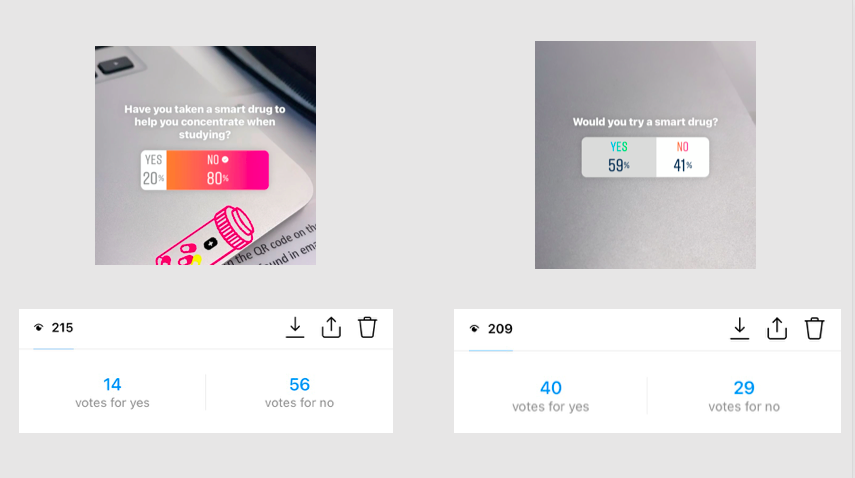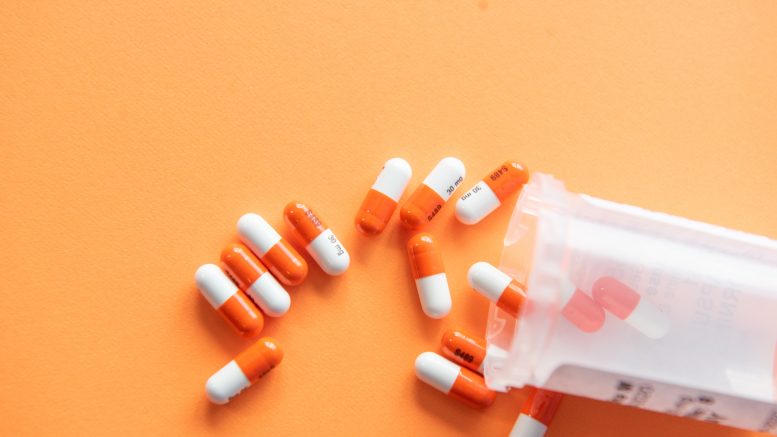Trying not to lose the discipline to study has been a great challenge during the lockdown. For many, stress levels have taken a toll on students concentration as they work towards deadlines.
As a result, the pandemic has stimulated the use of “smart drugs” as an aid to study. You would assume drugs are taken to get high but in this case, it is to achieve higher grades.
There has been controversy about the use of cognitive enhancers, are they good for you? Or are they just a psychological myth to get you to focus?
With online classes and work piles stacking up, it is without doubt, that the ability to focus and feel motivated will be off somewhat. It is likely that the usage of drugs during lockdown has risen.

Photo by: Dimitar Donovski | Unsplash
What is a smart drug?
A smart drug is a stimulant, taken to enhance focus when studying or to get you through a hard day at work. Although it helps, it does come with side effects that can be harmful to your body if used regularly, just like any drug.
The majority of smart drugs are prescribed to treat ADHD, as they are part of the amphetamine family. However, people who do not, tend to feel more energised and focused.
There are two types of cognitive enhancers:
Type One: Synthetic
Synthetic nootropics are made in labs that can be used as a medicinal prescription to treat ADHD, but tend to be misused for educational purposes.
Adderall – used to improve brain function
Side effects: loss of appetite, abdominal pain, vomiting and insomnia
Ritalin – an enhancer for processing information, memory and attention span.
Side effects: nervousness, nausea, dizziness and trouble sleeping
Noopept – a synthetic substance that improves memory
Side effects: Insomnia, fatigue and anxiety
Modafinil (also known as Provigil) – used to stimulate the brain, effects can also be similar to the use of amphetamine and cocaine
Side effects: depression, irritability and insomnia

Photo by: Isaac Quesada | Unsplash
Type Two: Natual
Natural nootropics often include regular coffee and nicotine. However, all-natural supplements can be bought over the counter, with no prescription. These can be found in health stores such as Holland and Barrett.
L-Theanine – a natural substance found in tea leaves
Side effects: upset stomach, irritability and nausea; similar to drinking a high dose of caffeine
Creatine – improves cognitive functions
Side effects: dehydration, muscle cramping and weight loss
Bacopa Monnieri – an ancient herb used in Ayurvedic medicine. It enhances the stimulation of the brain while improving memory and reduces the reaction times
Side effects: stomach cramps, nausea and dry mouth
Rhodiola Rosea – a natural herb that helps the body to act when in stress
Side effects: anxiety, occasional headache and agitation
Panax Ginseng – improves memory and mental processing
Side effects: insomnia
Omega 3 – a fatty acid found in fish oil that is used as a mental enhancer. It can improve the function of the brain, especially if the individual has a memory problem.
Side effects: nausea and diarrhoea
CBD – natural CBD has been seen to improve focus and memory
Side effects: gastrointestinal problems and dry mouth
Many other supplements can be used to enhance focus when studying. Taking smart drugs that are artificial tend to leave you with major side effects compared to natural supplements.
Would you try smart drugs?
A poll was posted over Instagram to get an insight into if people have tried smart drugs before or if they would try it.

Instagram Poll by @ambxrmeg
Following this poll, individuals that said ‘yes’ were then interviewed to get their experience on using a smart drug.
Aly M, 24, graduate in Accounting and Finance at The University of Nottingham, talked about his experience with using smart drugs whilst at university. “I have tried a smart drug before that I purchased over the internet, I think it was Modafinil. I did not know what the side effects were until it hit me after I finished working.
“When I tried it, it kept me up for too long, it helped me concentrate, but towards the end, I got distracted and started focusing on my phone rather than studying. The only side effect that I got was an upset stomach.”
Adam I, 24, graduate in Psychology at Regents University said that he had been prescribed Modafinil. He told Voice of London: It didn’t affect me, it was like I never took it.”
Miraj H, 23 graduate in Industrial Economics at The University of Nottingham shares his story on using a smart pill.

Photo by: zwenzini | Flickr
“During my time at university, I developed a strong taste for the ‘party lifestyle’, and come to the end of each semester, I often found myself drowning in uni work. Six exams, four semesters, and I still hadn’t learnt.
“I promised myself I would start revision early this time. Thankfully I came across a sort of ‘quick-fix’. I was offered the chance to buy some ‘smart drugs’ by a stranger whilst sitting at my desk in the Library. £20 didn’t seem too bad if it was going help me ace my economics of innovation exam.
“15 minutes or so went by following a sip of water with a ‘Modafinil’ pill, and I suddenly had an urge to write down as many notes from various sources as I could. The pill made me not just motivated, but it made me feel as though my life depended on getting as much done as possible.

Photo by: nym | Flickr
“It made me anxious, but that anxiety led me to get a first on the paper. What followed was remarkable, I managed to get firsts on every exam onwards. I was dependent on it, but it was only temporary, and I would do it again if need be, although I didn’t know the risks. After using the pill, it made me have insomnia and weird dreams, along with a stomach ache.”
Adam R, 22 from London said that his experience with Modafinil happened when he was in year 12 studying for an exam. He explained that it did help retain information as it felt like he was going “100mph”.
He said that the comedown to using it “felt like someone had ripped my stomach out from inside me, I guess you have to eat before as it suppresses your appetite” but it had an effect on him physically rather than mentally.
Words: Amber Meghani | Subbing: Anuj Datta

